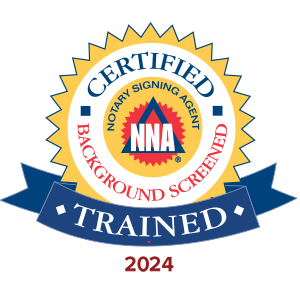Can I Notarize a Document From Another State?
Various legal documents need to be notarized to strengthen their legitimacy, hence why it’s crucial to get the help of a notary for securing wills, affidavits, deeds to real estate, trusts, asset transfers, and other important documents. Most documents that require this extra wall of security involve legal and financial matters and include those that are easily fabricated, which is why the signature of an authorized notary can be beneficial—and sometimes required—in specific situations.
Most individuals work with a local notary firm to witness the document signing process as the physical presence of both parties is required in a traditional setup. But if you’re about to move to a different state or need to notarize a document from another entity halfway across the country, working with a local notary might not be the most convenient.
That brings to question whether a notary can notarize a document from another state and how you can benefit from out-of-state notarization.
Can I Get Something Notarized in Another State?
The short answer is yes—you can get a document notarized in another state. But there are a few things you need to know to aid your decision in pushing through with this arrangement.
Notaries are third parties in the document signing process, adhering to the oath that they can’t have any personal interest or involvement in the paperwork details and are not allowed to offer any form of legal advice unless they’re an attorney practicing civil-law notary. In most cases, their work only allows them to act as witnesses to ensure that the right individuals sign a document or certificate under neutral circumstances. However, they can perform other duties on certain occasions—with duties that extend to proving the signer’s identity through an identification document, such as a driver’s license.
What’s important to know about notaries is that they’re only legally allowed to commence operations in their local state, as state laws concerning notarial acts greatly differ. For example, there are different qualifications for becoming a notary public in Wyoming and North Dakota.
As a result, a notary public has to get a different license and notary commission every time they move their company to another state. Moreover, a notary must abide by their local state laws, which can change the way they verify the signer’s identity or follow distinct rules in what a notary can perform.
However, a notary can oversee individuals who need to sign a document from a different state. For example, suppose you’re initially from North Dakota and need a locally-created document to be signed in California, where you currently reside. In that case, you can request the help of a California-based notary public to complete the signing process. However, do note that they’re obliged to follow the California state law throughout the notarizing practice.



